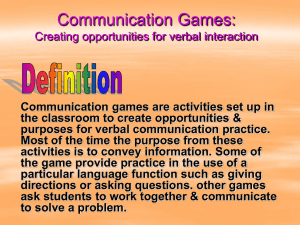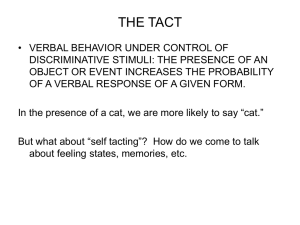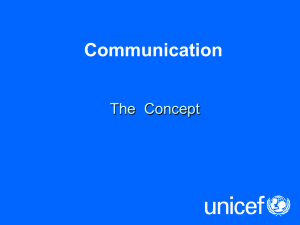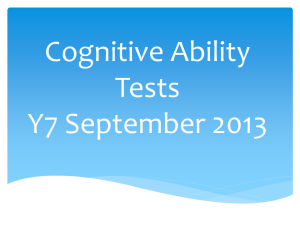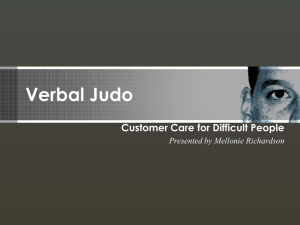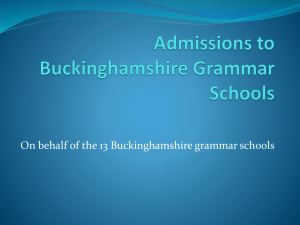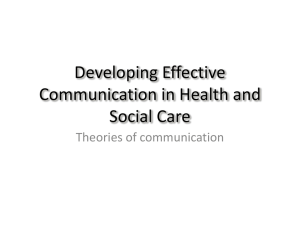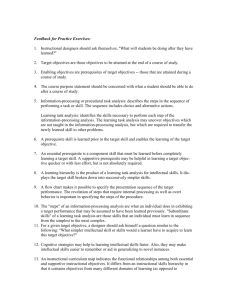Critical Thinking: Does It Mean What You Think?
advertisement
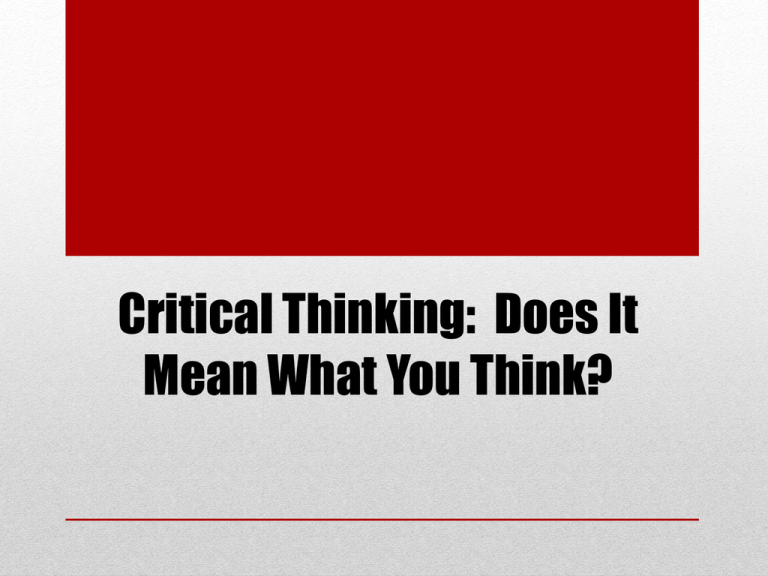
Critical Thinking: Does It
Mean What You Think?
On Conjugation of
Cyclically-Generated
Banach Spaces
What’s So Critical About
Thinking Anyway?
Ocean’s Fourteen Auditions
So What Exactly IS Critical
Thinking?
(And Can It Really Kill You?)
Dave Sobecki
Miami University* Hamilton
* Miami University is not in Florida. When it
was founded, Florida was a Spanish territory
(1809).
I shall not today attempt further to define
the kinds of material I understand to be
embraced within that shorthand
description ["hard-core pornography"]; and
perhaps I could never succeed in
intelligibly doing so. But I know it when I
see it, and the motion picture involved in
this case is not that.
—Justice Potter Stewart, concurring
opinion in Jacobellis v. Ohio 378 U.S. 184
(1964), regarding possible obscenity in
The Lovers.
Critical Thinking as Defined by the National Council for
Excellence in Critical Thinking, 1987
A statement by Michael Scriven & Richard Paul {presented at the 8th
Annual International Conference on Critical Thinking and Education
Reform, Summer 1987}.
Critical thinking is the intellectually disciplined process of actively and
skillfully conceptualizing, applying, analyzing, synthesizing, and/or
evaluating information gathered from, or generated by, observation,
experience, reflection, reasoning, or communication, as a guide to
belief and action. In its exemplary form, it is based on universal
intellectual values that transcend subject matter divisions: clarity,
accuracy, precision, consistency, relevance, sound evidence, good
reasons, depth, breadth, and fairness.
HUH?
👍
👍
👍
👍
👍
“Dude, this class sucks.”
“Dude, this textbook sucks.”
“Math and science education is at a
critical juncture in the United States.”
• Analyze information provided in detail, and in a scholarly
way
• Evaluate a situation and judge what is useful in solving
problems
and drawing conclusions
• A method of exercising one’s thinking ability in a way that
is crucial
to intellectual and personal development
• A transition from childhood thinking to adult thinking
• A process that leads to further intellectual development
and
encourages students to become lifelong learners.
Definition By Contradiction
Def: Critical thinking in math
The OPPOSITE of memorization and
mimicry.
And now, the big question:
The Obvious (and most common) Way:
Critical thinking questions on HW/Tests
But can we expect our students to excel at critical
thinking
questions if we don’t train them to, you know,
THINK CRITICALLY?
The More Important Way:
TEACHING
STYLE
What do your students understand?
What can they explain?
ASK THEM!
What is a variable?
“It’s a letter, like x.”
NO IT’S NOT
Able to vary
Able to vary
What is an equation?
“It’s a thing you solve for x.”
NO IT’S NOT
Statement
Is 3y2 – 7y +12 true?
What is solving an equation?
“It’s getting x by itself on one side.”
NO IT’S NOT
Understanding vs. Doing
What is solving an equation?
“It’s getting x by itself on one side.”
NO IT’S NOT
Understanding vs. Doing
What is a function?
“It’s a formula, like f(x) = x2.”
NO IT’S NOT
Relationship
“I solved the function.”
What is a graph?
“You plot points and connect the dots.”
NO IT’S NOT
Picturing Data
Unemployment Rate by Year
Year
'92 '93 '94 '95 '96 '97 '98 '99 '00 '01
Rate (%) 7.5 6.9 6.1 5.6 5.4 4.9 4.5 4.2 4.0 4.7
Year
'02 '03 '04 '05 '06 '07 '08 '09 '10 '11
Rate (%) 5.8 6.0 5.5 5.1 4.6 4.6 5.8 9.3 9.6 8.9
Assessment is important too!
(A) Write a verbal description of the inequality x
> –3, and a verbal description of the inequality x
> 5.
(B) The expression –3 < x > 5 is a combination
of the two inequalities from part (A). Rewrite
your two verbal descriptions from part (A) with
the word “and” in between, then use the result
to describe why the expression
–3 < x > 5 is silly.
Assessment is important too!
ò
2
x +16 dx
Assessment is important too!
(A) Find the value of the expression (3 + 8)2.
Don’t forget order of operations!
(B) Find the value of 32 + 82. How does it
compare to your answer from part (A)?
(C) Rework parts (A) and (B) with any two
nonzero numbers you choose.
(D) What can you conclude about “distributing”
an exponent?
Assessment is important too!
Explain what it means to solve an equation in
your own words.
But Dave, what about online homework? Can
critical thinking play a role?
Yes. Yes it can.
Comments?
Questions?
Suggestions?
Dirty jokes?
davesobecki@gmail.com
facebook.com/Teachingbackwards
@teachbackwards


